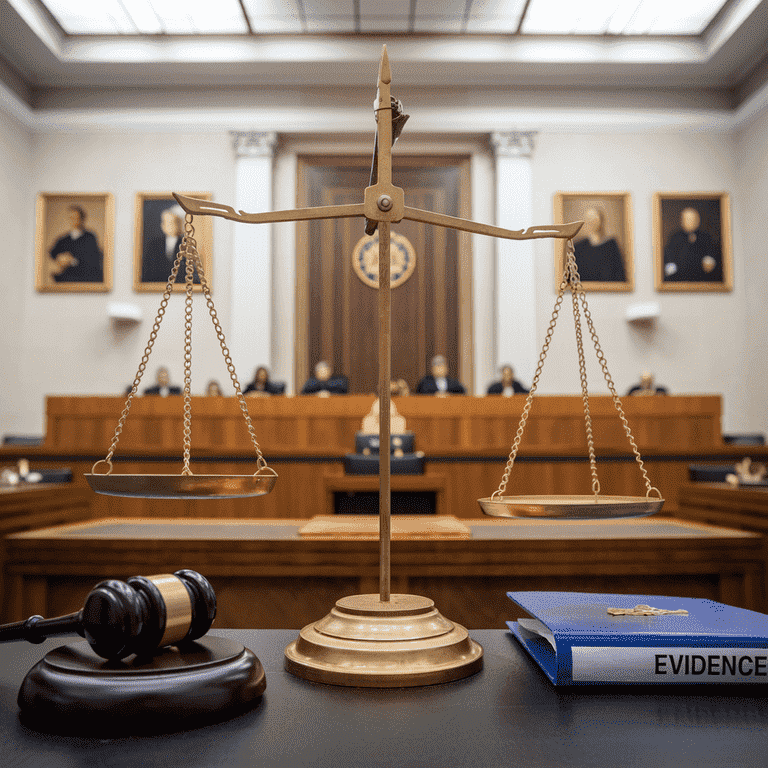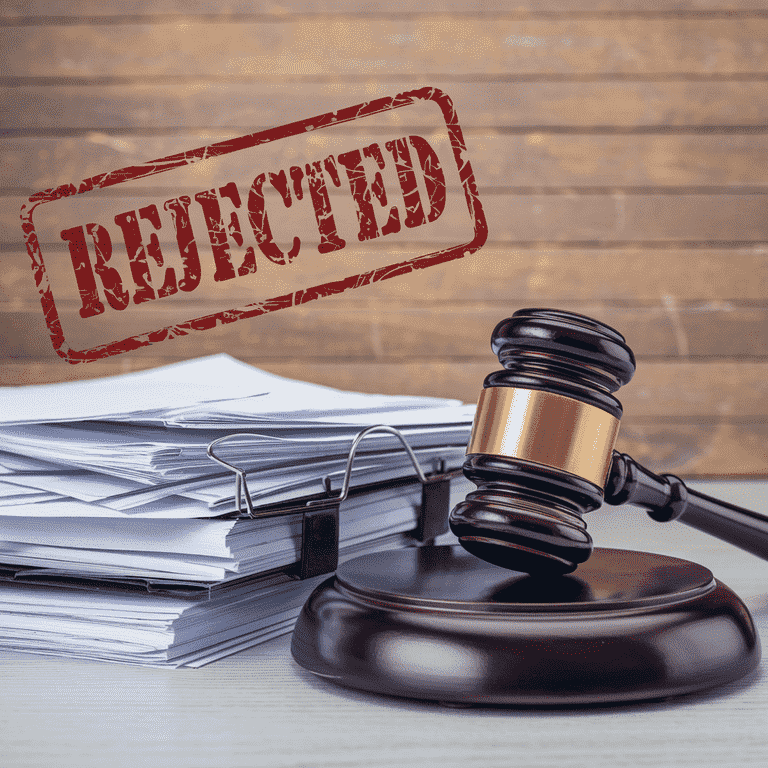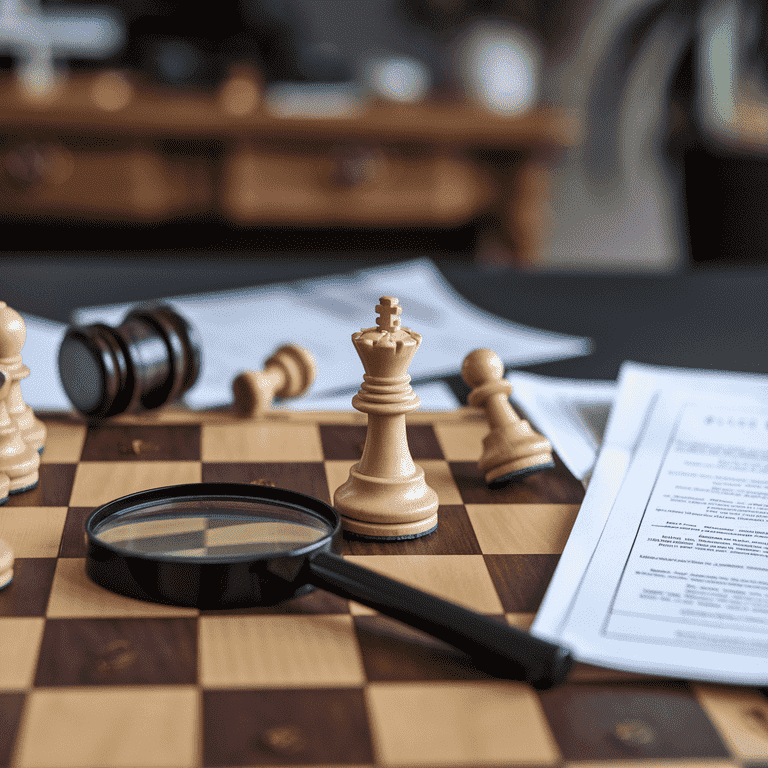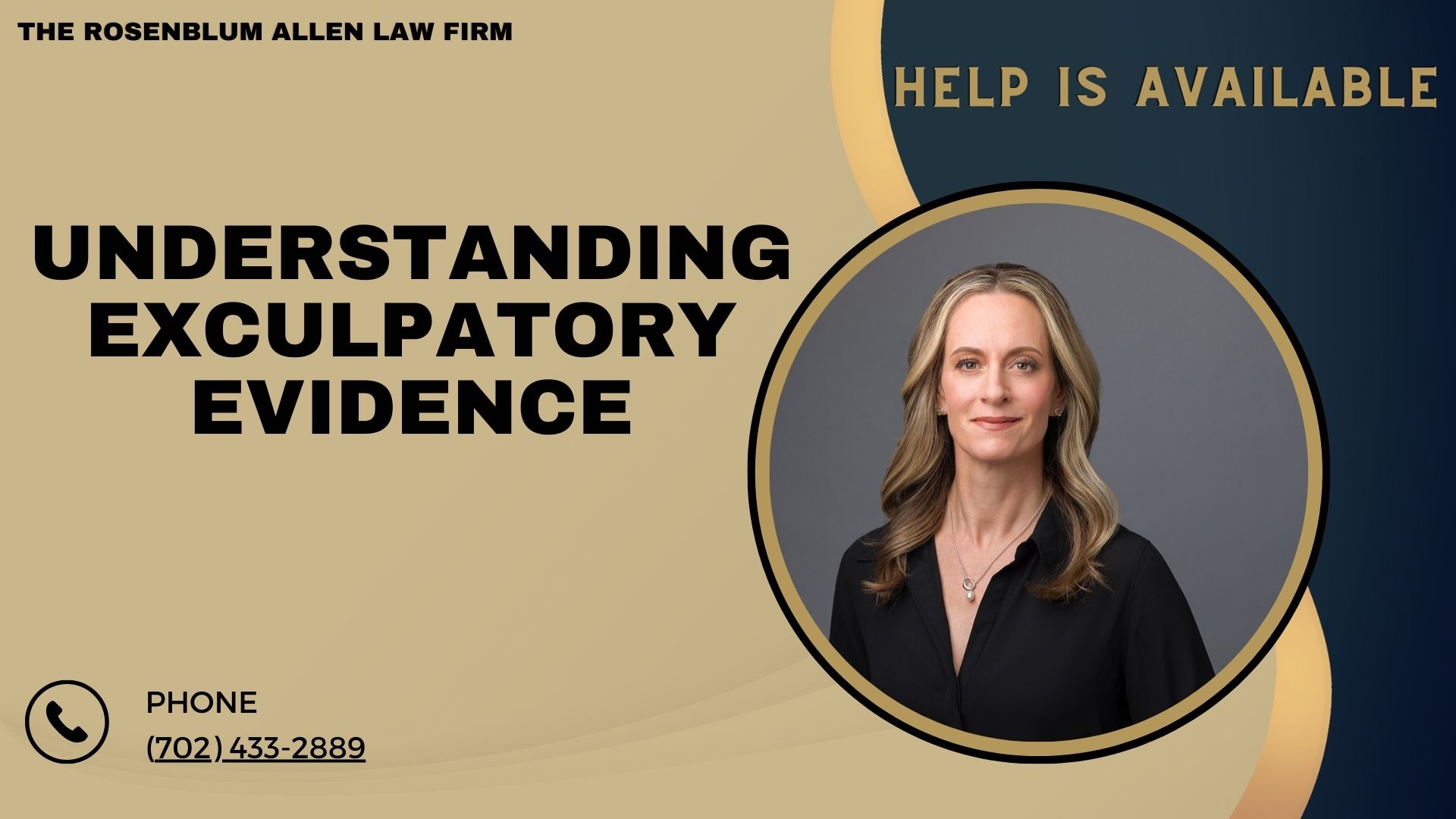Are you facing criminal charges? Understanding exculpatory evidence could be your key to freedom. Let’s dive into this crucial aspect of criminal defense that might turn your case around.
 When you’re caught up in the whirlwind of a criminal case, it’s easy to feel overwhelmed. But here’s a ray of hope: exculpatory evidence. This powerful tool could be your ticket to proving your innocence. Let’s break it down.
When you’re caught up in the whirlwind of a criminal case, it’s easy to feel overwhelmed. But here’s a ray of hope: exculpatory evidence. This powerful tool could be your ticket to proving your innocence. Let’s break it down.
Definition and Importance
Exculpatory evidence is like a superhero in the world of criminal defense. It’s any evidence that might prove your innocence or cast doubt on your guilt. Imagine finding a golden key that could unlock the chains of accusation – that’s exculpatory evidence for you!
- Legal meaning: In legal terms, evidence favorable to the defendant in a criminal trial clears or tends to clear the defendant of guilt.
- Role in criminal cases: This evidence can be a game-changer. It might lead to dropped charges, a not-guilty verdict, or even prevent wrongful convictions.
Think about it – a single piece of evidence could be the difference between freedom and incarceration. That’s why it’s so crucial in criminal cases.
Types of Exculpatory Evidence
Exculpatory evidence comes in various forms. Let’s explore the main types:
Physical evidence: This is tangible stuff you can see and touch. It could be DNA samples that don’t match yours.
- Fingerprints that belong to someone else
- Surveillance footage showing you weren’t at the crime scene
Witness testimony: Sometimes, people can vouch for you. This might include Eyewitnesses who saw someone else commit the crime.
- Character witnesses who can testify to your good nature
- Expert witnesses who can explain why you couldn’t have committed the crime
Alibi evidence proves that you were somewhere else when the crime occurred. For example:
- Credit card receipts from a store across town
- Phone records show you were on a call.
- Selfies or social media posts with timestamps
Remember, each piece of evidence tells a story. Your job, along with your defense attorney, is to piece these stories together to paint a picture of your innocence.
Legal Framework
Now that we understand exculpatory evidence let’s dive into the legal stuff. Don’t worry – we’ll keep it simple.

Brady Rule
The Brady Rule is like the golden rule of exculpatory evidence. It’s named after a famous Supreme Court case, Brady v. Maryland. Here’s what you need to know:
Key principles
- Prosecutors MUST share exculpatory evidence with the defense.
- This applies even if the defense doesn’t ask for it.
- The evidence must be material to guilt or punishment.
Think of it as a fair play rule in sports. The prosecution can’t hide the ball – they must show all their cards, even the ones that might help you.
Relevant Case Law
The Brady Rule isn’t the only game in town. Other court decisions have shaped how we handle exculpatory evidence. Let’s look at a couple of landmark decisions:
Giglio v. United States (1972) – Extended Brady to include evidence that could impeach prosecution witnesses.
- This means prosecutors must disclose deals made with witnesses.
United States v. Bagley (1985) – Established the “materiality” standard
- Evidence is material if there’s a “reasonable probability” it would change the outcome
These cases have real-world implications for your defense. They give your attorney tools to demand all evidence that might help your case. Remember, the law regarding exculpatory evidence is on your side. It’s all about ensuring a fair trial and protecting your rights. Stay tuned as we explore how to handle this crucial evidence in your defense strategy.
Handling Exculpatory Evidence
Now that we’ve covered the basics let’s roll up our sleeves and get into the nitty-gritty of handling exculpatory evidence. This is where the rubber meets the road in your defense strategy.

Discovery Process
The discovery process is like a treasure hunt for evidence. It’s your chance to uncover those golden nuggets that could prove your innocence. Let’s break it down:
Requesting evidence
Your defense attorney will be your champion here. They’ll send formal requests to the prosecution, asking for any exculpatory evidence. But it’s not just about asking nicely. Here’s what you need to know:
- Be specific: Your lawyer should ask for particular types of evidence.
- Cast a wide net: Don’t be afraid to ask for everything that might help.
- Follow up: If the prosecution drags their feet, keep pushing.
Remember, the prosecution is obligated to hand over exculpatory evidence. But sometimes, they need a little nudge.
Challenging non-disclosure
What if the prosecution plays hide-and-seek with evidence? Don’t worry; you’ve got options:
- File a motion: Your lawyer can ask the court to order disclosure.
- Seek sanctions: If the prosecution willfully withholds evidence, they could face penalties.
- Request a new trial: In extreme cases, non-disclosure could lead to a do-over.
It’s like calling “foul” in a game. If the other side isn’t playing fair, the referee (judge) can step in. Presenting in Court
You’ve got the evidence. Now it’s showtime! Presenting exculpatory evidence effectively can make or break your case.
Admissibility issues
Not all evidence makes it to the courtroom stage. Here’s a quick checklist:
- Is it relevant?
- Is it reliable?
- Was it obtained legally?
Your attorney will fight to get your exculpatory evidence admitted. They’ll argue why it’s crucial for a fair trial.
Challenges and Best Practices
Let’s face it – dealing with exculpatory evidence isn’t always smooth sailing. But with the right approach, you can navigate these choppy waters.
Common Issues
Even with the law on your side, you might face some hurdles. Here are the biggies:
Prosecutorial Misconduct
Sometimes, prosecutors don’t play by the rules. They might:
- “Forget” to disclose evidence
- Claim they didn’t know about specific evidence.
- Argue that evidence isn’t exculpatory
It’s frustrating, but don’t lose hope. Your defense team can challenge these actions.
Evidence preservation
Evidence can be fragile. Here are some preservation pitfalls:
- Physical evidence gets lost or damaged
- Digital evidence gets deleted or overwritten.
- Witnesses’ memories fade over time.
That’s why acting fast and securing evidence as soon as possible is crucial.

Strategies for Defense Attorneys
Your defense attorney is your MVP in handling exculpatory evidence. Here’s how they can knock it out of the park:
Proactive Investigation
Reasonable defense attorneys don’t wait for evidence to fall into their laps. They go out and find it. This might include:
- Interviewing potential witnesses
- Hiring private investigators
- Reviewing surveillance footage
- Analyzing phone records or social media
It’s like being a detective, leaving no stone unturned in the search for exculpatory evidence.
Collaborating with professionals
Sometimes, you need a specialist to make sense of complex evidence. Your attorney might work with:
- Forensic scientists
- Medical professionals
- Technology professionals
- Psychologists
These professionals can help interpret evidence and explain it to the jury in a way that’s easy to understand. Remember, handling exculpatory evidence is a team effort. With a skilled defense attorney and a proactive approach, you can maximize your chances of a favorable outcome. Stay informed, stay involved, and never underestimate the power of evidence that could prove your innocence.

Breaking It All Down
As we close this chapter, remember that knowledge is power. Understanding exculpatory evidence empowers you to be an active participant in your defense. It’s not always an easy journey, but with the right approach and a dedicated team, you can navigate the complexities of the legal system.
Stay hopeful, stay informed, and never underestimate the power of evidence that could prove your innocence. Your story isn’t over – it’s just waiting for the proper evidence to be told.

Frequently Asked Questions
Can exculpatory evidence be introduced after a trial has concluded?
Yes, in some cases. If new exculpatory evidence is discovered after a conviction, it can be grounds for an appeal or a motion for a new trial. This is often seen in cases where advances in forensic technology, like DNA testing, reveal new information.
How long does the prosecution have to disclose exculpatory evidence?
The prosecution must disclose exculpatory evidence as soon as they become aware. This obligation continues throughout the trial process. Failure to disclose promptly can result in sanctions or even a mistrial.
Can a defendant be convicted if exculpatory evidence exists?
It’s possible but less likely. If exculpatory evidence is strong enough, it should create reasonable doubt, typically leading to an acquittal. However, a conviction could still occur if the evidence is weak or the prosecution’s case is extreme.
What happens if exculpatory evidence is destroyed?
If exculpatory evidence is destroyed, it can lead to severe consequences. The court may issue sanctions against the party responsible, including dismissal of charges, suppression of other evidence, or a favorable jury instruction for the defendant.
Is all favorable evidence considered exculpatory?
Not necessarily. The evidence must be material to the case to be considered exculpatory, meaning it could affect the trial outcome. Some favorable evidence might be helpful but insignificant enough to change the verdict.
Can gossip be considered exculpatory evidence?
While hearsay is generally not admissible in court, there are exceptions. It may be admitted if hearsay evidence is exculpatory and falls under one of these exceptions. Your defense attorney can argue for its inclusion if it’s crucial to your case.
How does exculpatory evidence differ in civil cases?
The rules around exculpatory evidence in civil cases are similar, but the stakes and standards are different. The burden of proof is lower in civil cases, so exculpatory evidence might have a different impact than in criminal cases.
Can I be compensated if exculpatory evidence leads to my exoneration after a wrongful conviction?
Many states have laws allowing compensation for those wrongfully convicted and later exonerated. The amount and process vary by state. Additionally, you may have grounds for a civil lawsuit against parties responsible for withholding exculpatory evidence.
How does plea bargaining affect the disclosure of exculpatory evidence?
Prosecutors are still obligated to disclose exculpatory evidence during plea negotiations. Failure to do so can be grounds for withdrawing a guilty plea if the evidence is later discovered.
Can social media posts be considered exculpatory evidence?
Absolutely. Social media posts, including status updates, check-ins, and photos with timestamps, can provide crucial alibi evidence. However, authenticating this evidence can sometimes be challenging.

Additional Resources for You
As you navigate through your legal challenges, it’s crucial to have access to the right resources and expertise. Our lead attorney, Molly Rosenblum Allen, Esq., has meticulously created a suite of resources to assist you during these trying times. Below is a comprehensive list of specialized legal services offered by The Rosenblum Allen Law Firm, designed to meet your needs across various areas of law:
- Criminal Defense Attorneys: Expertise in defending against a wide range of criminal charges. Learn More
- Las Vegas DUI Lawyer: Dedicated support for DUI charges, offering experienced legal counsel. Learn More
- Domestic Violence Lawyer Las Vegas: Specialized assistance for domestic violence cases, ensuring your rights are protected. Learn More
- Drug Possession Lawyer: Effective defense strategies for drug possession charges. Learn More
- Sex Crimes Attorney: Compassionate and confidential handling of sensitive sex crime allegations. Learn More
- CPS Defense Attorney: Robust defense services for child abuse and neglect allegations. Learn More
- Misdemeanor Lawyer: Assistance with misdemeanor charges to minimize potential consequences. Learn More
- Las Vegas Warrant Defense Attorney: Help in resolving outstanding warrants and related legal issues. Learn More
- Las Vegas Probation Violation Attorney: Representation for probation violation matters to protect your freedom. Learn More
- Theft Crime Defense Lawyer: Defending against theft charges with a focus on achieving the best possible outcome. Learn More
- Kidnapping Lawyers: Legal support for kidnapping charges, emphasizing a thorough and aggressive defense. Learn More
- Juvenile Defense Lawyers: Tailored defense strategies for juveniles facing criminal charges. Learn More
- Firearms Lawyer Las Vegas: Guidance and defense for firearms-related charges to uphold your rights. Learn More
Molly Rosenblum Allen, Esq. and The Rosenblum Allen Law Firm are dedicated to providing you with the legal support and resources necessary to navigate your legal situation effectively. Whether you’re dealing with criminal charges, DUI allegations, or other legal challenges, we are here to help every step of the way.

Outside Resources for You
American Bar Association (ABA): A leading national organization providing resources on various legal topics, including criminal defense and civil rights. Visit ABA
National Association of Criminal Defense Lawyers (NACDL): Offers extensive information and advocacy resources focused on criminal defense. Visit NACDL
The Innocence Project: An organization dedicated to exonerating wrongfully convicted individuals through DNA testing and reforming the criminal justice system. Visit The Innocence Project
Electronic Frontier Foundation (EFF): Focuses on defending civil liberties in the digital world, including privacy rights and freedom of expression online. Visit EFF
National Domestic Violence Hotline: Provides essential support and resources for victims of domestic violence. Visit National Domestic Violence Hotline
Drug Policy Alliance (DPA): Offers resources and advocacy for drug law reform, focusing on drug possession laws and policies. Visit DPA
RAINN (Rape, Abuse & Incest National Network): The nation’s largest anti-sexual violence organization, offering support for survivors and information on sexual assault laws. Visit RAINN

A Special Message from Our Lead Attorney, Molly Rosenblum Allen, Esq

Dear Reader,
Thank you so much for taking the time to explore our resources. I hope you found the information insightful. It should empower you as you navigate your situation. We, at The Rosenblum Allen Law Firm, understand that legal issues can be complex and emotional. Our team dedicates itself. We are committed to providing personalized, effective legal representation. Tailored to your unique needs.
If you feel ready to take the next step or wish to discuss your case further, I invite you to call us at (702) 433-2889. Together, we can achieve the best possible outcome for your situation.
Warmest regards,
Molly Rosenblum Allen, Esq.
The Rosenblum Allen Law Firm




